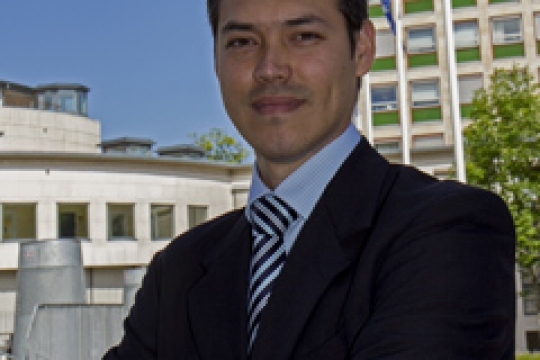The citizens of Gothenburg, Sweden will vote soon on whether to continue the already up-and-running congestion charge. New research from the University of Gothenburg shows that congestion charges are indeed a better way to reduce traffic and improve air quality. The doctoral thesis from the School of Business, Economics and Law shows that in Bogota, Colombia drastic driving restrictions have not been effective, while congestion charges besides cutting traffic, as it has happened in Stockholm, may be also used to achieve the European air quality goals.
Jorge Bonilla’s dissertation research focused on the economics of air quality control. One of his studies evaluated the effectiveness of the driving restriction program ‘Pico y Placa’ implemented in Bogota to reduce congestion and air pollution. The program consists of rationing car use at certain times of the day based on license plate numbers, which has become a popular policy in developing countries. It is low-tech and less expensive to execute.
Dr. Bonilla’s research showed that despite an initial improvement in air quality for some periods of the day, pollution and vehicle use did not decrease in the long run. In fact, there is evidence of increased carbon monoxide concentrations during drastic restrictions.
‘Vehicle ownership and driving increased in response to driving restrictions as drivers adapted to the phased-in program. People with economic resources acquired a second car. Low-income people woke up earlier to drive before the restrictions started in the peak hours. In contrast, gasoline consumption in Bogota decreased in response to increasing gasoline taxes, suggesting that market mechanisms may be more effective than driving restrictions.’ Jorge Bonilla says.
In one of his other studies, Jorge Bonilla and his co-researchers propose an adjustment to the congestion charge systems in Sweden and elsewhere to achieve air quality regulation. Most congestion charges currently in use incorporate price bans to mitigate congestion; however harmful concentrations are still exceeded in several occasions. Road pricing might also be temporally differentiated in order to harmonize with nature’s ability to cleanse itself and so comply European regulation. That is, a higher charge will be expected in periods when the environment is restricted to dilute pollutants. If congestion charges are allowed to vary with the capacity of nature to handle pollution, then they may reduce not only global warming but also the dangerous health effects of urban air pollutants. (Read more here)
The thesis was written with support from Sida’s environmental economics capacity-building programme.
Thesis title: Essays on the Economics of Air Quality Control
Link to the thesis: https://gupea.ub.gu.se/handle/2077/32864
The thesis was presented on 11 June 2013.
For more information, please contact:
Jorge Bonilla Londoño, +46 (0)31 786 52 52, jorge.bonilla@economics.gu.se
BY: Daniel Karlsson
